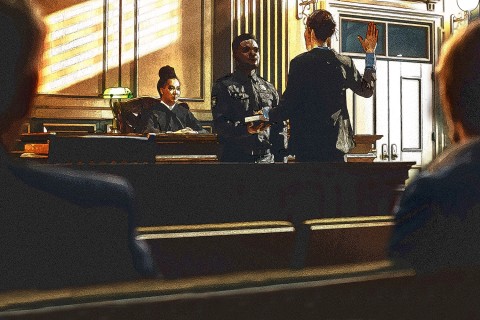The Last Station

The Last Station is a complex but entertaining study of a 48-year marriage and the way subtle and extreme changes that take place in each partner can take a terrifying toll on the relationship. This is not an unfamiliar premise, except that the principals in this battle of wills are Leo Tolstoy (Christo pher Plummer), the Russian novelist considered by many the greatest of all time, and his hot-blooded wife, Sofya (Helen Mirren), who is 20 years younger than Tolstoy and has borne him 13 children.
The film is directed by Michael Hoff man, who also adapted the script from the 1990 novel by Jay Parini. It takes place in 1910, by which time the 82-year-old Tolstoy, once a rebellious rascal and sexual adventurer, has grown mellow. His entire philosophy of life has changed, and his talk of peace and love and even chastity has spawned a “Tol stoyan” movement, complete with communes where people go to work the land, lead a simple life and consider the big questions of existence.
Sofya finds this whole idea tedious, and she is especially irked at the way her husband is revered for his late Christian conversion. “You all think he’s Jesus Christ,” she screams at a luncheon. “He thinks he’s Jesus Christ,” she adds for emphasis, pointing at her smiling husband at the head of the table.
Sofya’s biggest complaint, however, is more practical than spiritual. Thanks to the quiet urgings of Tolstoy’s good and loyal friend Vladimir Chertkov (Paul Giamatti), whom Sofya despises, Tolstoy is strongly considering changing his will in order to leave his lucrative literary rights to the poor Russian peasants. This drives Sofya absolutely bonkers, as she feels that the money is rightfully hers: she inspired Tolstoy, transcribed his long novels and even helped edit his work through late-night discussions about the actions and motivations of his characters. This fear of losing what she believes belongs to her leads to some erratic behavior, which in Tolstoy’s mind only makes the bad situation worse. He longs for peace and tranquillity in his final years—something that is not to be had with Sofya ranting much of the time.
Enter Valentin Bulgalov (James McAvoy), a young idealist in awe of the great Tolstoy, who is hired by the scheming Chertkov to keep an eye on Sofya. At first he is sympathetic to Chertkov’s plan, but as he gets to know the Tolstoys’ relationship up close, his sense of right and wrong, goodness and justice and love and desire begins to mature. This transformation is hurried along by the tempting presence of Masha (Kerry Condon), who has her eye on Valentin and doesn’t care much for the chastity part of the Tolstoyan code.
Though the largely factual plotline is thoroughly enjoyable on its own, the film’s great pleasure is watching two old pros like Plummer and Mirren go at each other. It is reminiscent of such classic films as The Lion in Winter, in which Peter O’Toole as Henry VIII and Kath erine Hepburn as his spurned ex-wife take turns verbally beating each other to a pulp, a battle they clearly relish despite their growing disdain. Plum mer’s Tolstoy must remain a tad more subdued, since he is 82 and has a weak heart, but that doesn’t mean he can’t fire off a zinger like, “You don’t need a husband. You need a Greek chorus!” Mir ren, having no such restrictions, straddles a balcony to spy on Chertkov, pulls a gun on her scheming daughter and throws herself into a river.
By the film’s final act, which takes place in the small train station where Tolstoy spent his final days, the yelling gives way to whispers. It is then that we realize The Last Station is not really about Tolstoy, Sofya, the struggle of the artist or the battle of the sexes. Rather, it is about love, in all its mind-numbing complexity. It reminds us that love is the fuel that can drive a relationship forward through a long difficult lifetime or blow it to smithereens at any time along the way.




